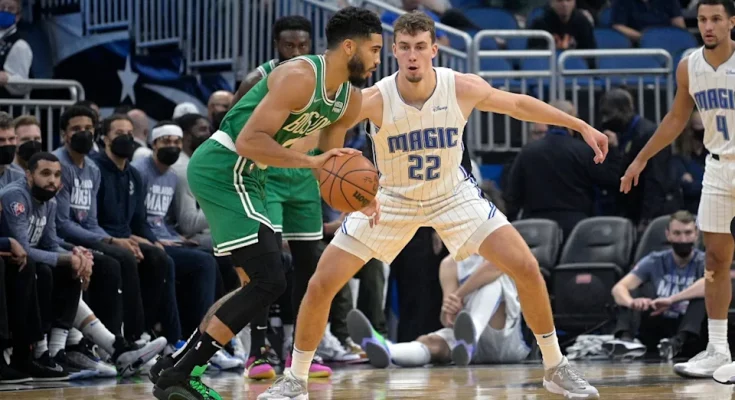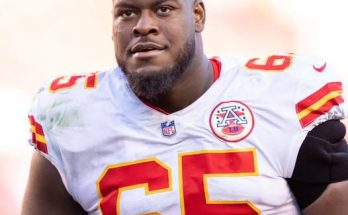The Boston Celtics have rarely entered a season as prepared, mature, and singularly focused as they are right now. Armed with an elite starting five and one of the NBA’s top-tier defensive schemes, Boston’s commitment to a championship-or-bust mentality is clear. But the true brilliance of a contending team lies not just in their overall talent, but in their ability to tactically expose matchup weaknesses when it matters most. That’s precisely what’s brewing as the Celtics prepare for a looming clash with the upstart Orlando Magic—one of the league’s most intriguing young teams. And while the Magic have earned respect through defensive tenacity and an emerging core, Boston sees through the smoke and mirrors. They’re poised to target one particular crack in the Magic’s armor—a surprising weakness that could decide the outcome of this potential playoff showdown.
For the uninitiated, Orlando’s transformation from a rebuilding team to a serious Eastern Conference presence has been driven by an identity rooted in length, defensive intensity, and positionless basketball. Led by Paolo Banchero, Franz Wagner, and a stable of lanky defenders, the Magic have weaponized youth and athleticism into a formidable unit that often disrupts opposing game plans. They challenge passes, close out on shooters, and rebound with intent. But as any savvy playoff contender knows, youthful exuberance is no substitute for playoff-caliber experience, versatility, or in some cases, offensive reliability. And this is where the Celtics intend to pounce.
While the public narrative often highlights Orlando’s size and paint presence as their strength, what tends to get overlooked is their troubling inconsistency from beyond the arc. The Magic ranked near the bottom of the NBA in three-point shooting percentage and attempts last season, and their offensive spacing often collapses in clutch situations. This is not a minor statistical quirk—it’s a tactical weakness. And Boston, a team that marries modern analytics with old-school execution, is perfectly positioned to weaponize this against them.
Boston’s defensive structure thrives against teams that can’t punish them from deep. The Celtics boast the luxury of switching nearly every pick-and-roll without giving up mismatches, thanks to the versatility of players like Jaylen Brown, Jrue Holiday, and Jayson Tatum. Al Horford and Kristaps Porziņģis are both capable of contesting shots inside and rotating out to perimeter shooters. Against the Magic, who rely heavily on mid-range creation and physical drives to the rim, Boston’s defenders can sag off certain wings without the typical risk of conceding efficient corner threes or top-of-the-key bombs.
Expect the Celtics to shrink the floor defensively, daring Magic guards and wings to beat them from outside. While Paolo Banchero continues to evolve into a star, his three-point shooting has not yet reached a consistent clip. Franz Wagner, although promising and skilled, still leans heavily on attacking the rim rather than spotting up from deep. Guards like Markelle Fultz and Anthony Black offer athleticism and defensive tools, but they too fall short of being knockdown perimeter threats. In playoff basketball, where spacing, shot selection, and decision-making separate pretenders from contenders, this flaw becomes amplified. Boston knows it.
On the offensive end, the Celtics’ plan is just as calculated. Against a team like the Magic, who rotate quickly and swarm the paint, the key is to force them into defensive decisions they aren’t used to making. Boston’s ball movement—especially with the addition of a cerebral floor general like Jrue Holiday—creates domino effects. Horford and Porziņģis serve as spacing bigs who pull Orlando’s shot blockers away from the basket. This opens up driving lanes for Brown and Tatum, both of whom thrive at initiating contact and finishing with finesse.
In games last season where Orlando’s opponents were able to force them into multiple rotations, cracks began to show. The Magic’s defensive excellence often relied on their ability to recover quickly—but against elite passing teams like Boston, those recovery windows shrink dramatically. Add to that the Celtics’ improved shot selection and three-point proficiency, and you have a formula that forces Orlando to chase the game rather than dictate it.
There’s also the matter of bench depth—a battlefield where Boston quietly made some significant upgrades. Orlando’s second unit, while energetic and defensively competent, lacks consistent scoring. Meanwhile, Boston brings in Payton Pritchard’s quick-trigger shooting, Sam Hauser’s floor spacing, and the occasional veteran spark from someone like Oshae Brissett or Neemias Queta. The Celtics can stretch the floor with second units, exploiting any defensive lapses from Orlando’s bench with precision.
Another point to consider: playoff composure. The Magic’s youth is exciting, but there’s a difference between regular-season success and playoff survival. Teams don’t just get exposed for weaknesses—they get dissected. Boston has been through multiple deep playoff runs, heartbreaks, and system shifts. They know the margin for error is razor-thin. Orlando, by contrast, hasn’t yet faced the full weight of postseason expectations. Inexperience shows up in rotations, shot clocks, timeouts, and adjustments. It’s not a knock on the Magic’s potential—it’s simply a recognition that playoff basketball is a different language, and the Celtics are fluent.
It’s also worth highlighting that while the Magic’s strength lies in their defensive identity, it can also become a self-inflicted vulnerability. When a team overcommits to help defense or tries to force turnovers rather than sit in disciplined coverage, it leaves gaps. The Celtics are excellent at identifying overplays and reacting accordingly. Backdoor cuts, baseline relocations, and off-ball screens are the subtle wrinkles that allow Boston to punish any team that loses focus for even half a second. Expect them to set countless screens for Tatum off the ball, forcing mismatches that Orlando must scramble to contain.
Let’s not forget that Joe Mazzulla, often maligned early in his tenure, has matured into a much more tactically sound coach. His in-game adjustments and timeout usage have improved, and his trust in role players to contribute within their lanes has enhanced Boston’s overall cohesion. He’s not going to enter a series against the Magic trying to out-athlete them. He’ll try to outthink them—and against a young team that leans heavily on instinct, that’s a major edge.
And for all the hype surrounding the Magic’s rise, they still struggle in late-game execution—especially in tight contests. Their offensive sets tend to stagnate under pressure, with hero-ball tendencies taking over instead of structured playmaking. Boston, meanwhile, can turn to multiple closers. Whether it’s Tatum with a mismatch, Brown exploiting a switch, or Porziņģis punishing a smaller defender in the post, the Celtics have more reliable endgame options. That’s not just a luxury—it’s a weapon.
None of this is to suggest that Orlando should be dismissed. Far from it. They’ve built an admirable foundation, and their youth, length, and competitiveness are going to make them a problem for years to come. But what separates playoff teams from championship teams is the ability to not just exploit a weakness—but to do so ruthlessly, over a seven-game series. The Celtics have shown they’re capable of that. They’ve done it before. And as they prepare to go head-to-head with a team that mirrors some of their earlier DNA—brimming with potential but vulnerable to experience—the Celtics appear eager to exploit the illusion of invincibility that Orlando has projected.
So while the casual observer might see two strong Eastern Conference squads set to clash, Boston sees something more. They see a strategic opportunity. They see a team with defensive pride but offensive holes. They see a rotation that can be tested, an offense that can be manipulated, and a playoff moment that might arrive too soon for a team still finding its true identity. Most importantly, they see a clear path to assert their dominance—and they’re ready to take it.
Because in the NBA, illusions don’t last long. And the Celtics? They’ve already found the flaw in the Magic’s mirror.



